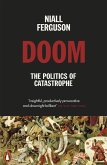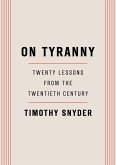In her essay 'The Roots of Trust', Anna Rowlands argues that our undoubted loss of trust is not an invention of the last 50 years, but a feature of modernity that we cannot solve by artificial abstract means but only through encounters with real people, and through loving acts of committed entrustment. In 'Trust in Oneself' Clare Gilbert writes that leaders need to have the self-trust and confidence to rule, but, she notes, so often self-trust comes out of a lack of self-knowledge, while self-knowledge can prevent good leaders from stepping forward, precisely because they know their own failings all too well. In 'Trust in Institutions', Anthony Ball offers a virtue-based guide to rebuilding trust in institutions by means of four virtues: honesty (intelligent openness), humility, compassion, and competence. Institutions are given a mandate by the public and proceed to earn trust by compassionately and competently implementing this mandate. In 'Trust in People', James Hawkey arguesthat trust in each other, between groups that male up 'the people' is a choice: trust can't be injected like a vaccine. To trust is to risk, to become vulnerable, to place the centre of our universe somewhere other than ourselves.Together these essays provide deep reflections on the nature of trust in the context of public life, agreeing that it is engendered through real encounters, not in the abstract or by force, and offer guidance on how to make those encounters real, whether they be within oneself, between people, or within institutions and the people they serve.
Bitte wählen Sie Ihr Anliegen aus.
Rechnungen
Retourenschein anfordern
Bestellstatus
Storno








